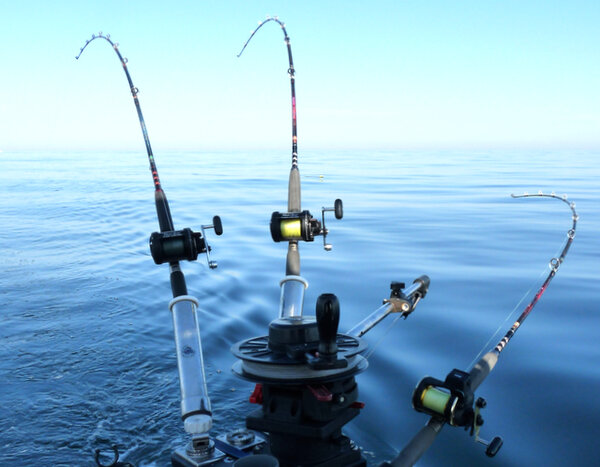
Salmon fishing in the Baltic Sea is not only a popular recreational activity, but also an important economic sector. By improving the protection of weak salmon populations in the southern Baltic Sea, it was decided in 2022 to limit the harvest of salmon to fish without adipose fin (stocked fish). At the same time, a bag limit of one salmon per day per angler was introduced. But what do anglers think of these new regulations and which fishing experience or regulations would they prefer?
Background and objectives
The Baltic salmon stock composes of a variety of salmon populations originating from different rivers along the Baltic coast. Overall, the salmon populations have developed very positively since the 1990s, which is reflected in a continuous increase in the number of migrating smolts from the rivers. In the southern Baltic Sea, however, there are still some rivers with very weak salmon populations that show little recovery despite reductions in fishing mortality, but overall also contribute little to salmon production in the Baltic Sea. Nevertheless, there is a risk here that local populations will be lost forever, thus also reducing the genetic diversity of Baltic salmon. Since much of the marine fisheries for salmon (commercial and recreational) in the Baltic Sea are conducted in areas where populations are mixing, this led to the recommendation to close all fisheries in the southern and central Baltic Sea that could potentially catch salmon from rivers with weak populations. To protect these weak salmon populations, an EU-wide regulation was then introduced for the first time in 2022, banning commercial fishing in the open sea, south of the Åland Sea, altogether. For recreational fishing, a uniform bag limit of 1 salmon per day per angler was introduced in the same area. In addition, the removal of salmon was restricted to stocked fish (fish without adipose fin).
The introduction of the new regulations in the recreational salmon fishery, was a drastic step and has significant impact on angler behavior and therefore strong economic consequences. In Germany, Baltic salmon and the associated trolling fishery are of great tourist and economic importance, especially for the island of Rügen. Our data collection, which has been conducted regularly since 2016, shows that each salmon angler spends an average of around €2,750 per year on salmon trolling in Germany. This results in a total estimated annual expenditure of around €5 million on salmon trolling in the region, which corresponds to expenditure of around €1,000 per harvested salmon.
The objective of this study is to understand which regulations and fishing experience salmon trolling anglers prefer in the Baltic Sea and how they evaluate the current regulations. In addition, we are interested in anglers' opinions on the current situation of the Baltic salmon stock and management measures. The knowledge gained from this study can be used as a basis to inform policy makers and develop recreational fisheries management that takes into account both the good ecological status of salmon stocks and the economic importance of recreational fishing for salmon.
We use a mixture of a conventional survey and a so-called "choice experiment" as part of a larger online survey on salmon trolling in the Baltic Sea. In the choice experiment, anglers decide between different, predefined fishing experiences and regulations, which allows us to investigate their preferences. The Choice Experiment will be part of a larger online survey about salmon angling in the Baltic Sea. Participants will be recruited locally through face-to-face interviews directly in the harbor and by advertising the survey on social media.
A special feature is that the survey and the choice experiment will be conducted simultaneously in Denmark and Germany to capture a wider range of preferences for different regulations and fishing experiences and to achieve a higher robustness of the results.
The project is conducted in collaboration with the University of Southern Denmark (SDU), Technical University of Denmark (DTU) and the Leibniz Institute of Freshwater Ecology and Inland Fisheries (IGB).
Participate now:
Link to the survey or simply scan the QR code.


![[Translate to English:] [Translate to English:]](/media/_processed_/d/7/csm_Startseite-OF_03_c0dfd6e750.png)
![[Translate to English:] [Translate to English:]](/media/_processed_/a/3/csm_20181116-151457-Stella-Jerome-Fischfalle-Warnem%C3%BCnde-Dorsche-im-Netzk%C3%A4fig-5691_heller_3050c72fa2.png)





